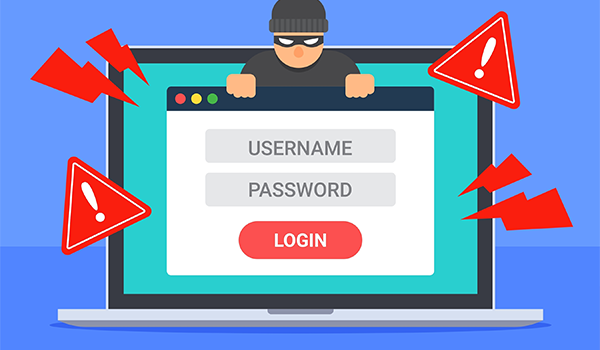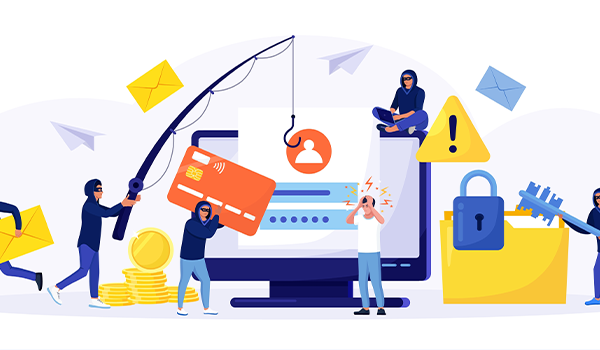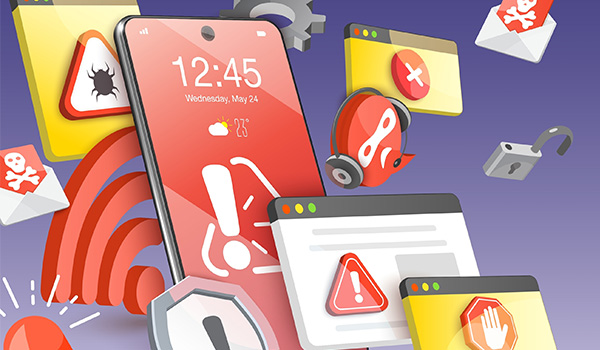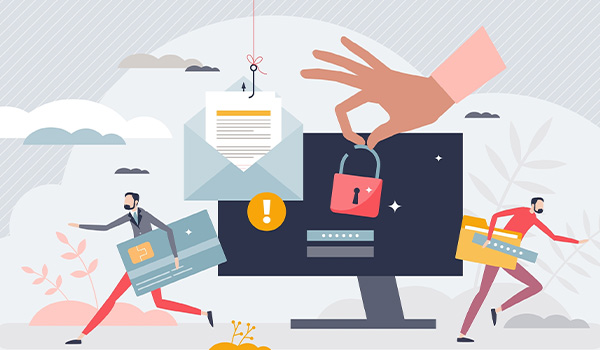The festive season brings joy, warmth, and unfortunately, an uptick in holiday fraud. As we embrace the holiday spirit, it's crucial to stay vigilant and informed to safeguard our finances and personal information.
In this comprehensive guide, we'll delve into the realm of holiday fraud, exploring common scams, digital threat terminology, understanding alerts, and equipping you with the knowledge to stay secure during this celebratory season.

What is Holiday Fraud?
'Tis the season for joy and merriment, but unfortunately, it's also the time when holiday fraud is on the rise. Understanding the nuances of holiday fraud is the key to safeguarding your celebrations. From phishing emails and fake charities to package theft, the festive season attracts a variety of scams.
Let’s unravel the common tactics fraudsters employ, empowering you with knowledge to stay one step ahead. Let’s dive into the world of holiday fraud, equip yourself with insights, and ensure a season filled with joy, not financial worry.

Identifying Digital Threats
Phishing
Phishing is a type of cyber attack where scammers use deceptive emails, messages, or websites to trick individuals into divulging sensitive information such as passwords, credit card numbers, or personal details.
Example: An email claiming to be from a reputable bank requests the recipient to click on a link and enter their login credentials to address a supposed security concern.
Spyware
Spyware is malicious software designed to secretly observe and collect information about a user's online activities without their knowledge or consent. It can capture keystrokes, track web browsing, and even record sensitive information.
Example: Downloading a seemingly innocuous software that, unbeknownst to the user, installs spyware to monitor their online behavior.
Malware
Malware, short for malicious software, is a broad term encompassing various types of harmful software designed to disrupt, damage, or gain unauthorized access to computer systems.
Example: A user unknowingly downloads malware by clicking on a link in a phishing email, leading to the installation of harmful software on their device.
Ransomware
Ransomware is a type of malware that encrypts a user's files or entire system, rendering them inaccessible. Cybercriminals then demand a ransom, usually in cryptocurrency, for the decryption key.
Example: A user opens an email attachment, unknowingly activating ransomware that encrypts their files. The attacker then demands payment for the release of the decryption key.
Social Engineering
Social engineering is a tactic used by cybercriminals to manipulate individuals into divulging confidential information. It often involves psychological manipulation and deception.
Example: A scammer poses as a trusted colleague over the phone, persuading an employee to share sensitive company information.

Common Holiday Scams to Avoid
Below are some common holiday scams that pose a threat to your festive cheer.
Phishing Emails and Websites
Fraudsters often create fake emails or websites mimicking legitimate retailers or charities, enticing unsuspecting victims to provide personal information or make fraudulent purchases.
Gift Card Scams
Scammers may request payment in the form of gift cards, exploiting the anonymity and irreversibility of these transactions.
Package Theft
With the rise of online shopping, package theft becomes a prevalent issue during the holidays. Thieves may snatch delivered packages from doorsteps.
Fake Charities
Fraudulent charities surface, taking advantage of the season of giving. These scams trick individuals into donating to non-existent causes.

Be Alert with Red Flags in Holiday Fraud Scenarios
It's time to enlist the vigilant protectors standing between you and potential fraud. Holiday Fraud Alerts are the unsung heroes of your financial well-being, ready to sound the alarm at the first sign of suspicious activity.
Financial institutions and authorities are proactive in issuing alerts to protect consumers during the holiday season. Familiarize yourself with these alerts to recognize potential threats:
Unusual Account Activity Signaling Potential Holiday Scams
Keep an eye on your bank and credit card statements for any unauthorized or unfamiliar transactions. Report any discrepancies promptly.
Security Updates
Stay informed about security updates from your financial institution. They may provide guidance on emerging scams and precautionary measures.
Email and Text Alerts
Enable email or text alerts for account activity. Financial institutions often send immediate notifications for transactions or logins from new or unrecognized devices.

How to Avoid Holiday Scams
Amidst the joy and festivities, it's paramount to safeguard yourself against potential threats. As we continue on, we'll explore proactive measures and invaluable tips on how to stay secure during the holiday season.
Protecting yourself from holiday fraud requires a combination of awareness and proactive measures. Here's a guide to staying secure:
Verifying Emails and Websites to Counteract Holiday Phishing Scams
Be cautious of unsolicited emails or unfamiliar websites. Verify the legitimacy of links before clicking, and cross-check email addresses for authenticity.
Use Trusted Retailers to Stay Away from Holiday Scams
Stick to reputable online retailers and avoid deals that seem too good to be true. Check for secure website connections (https://) and verify seller reviews.
Ensuring Package Security to Prevent Holiday Scams
If possible, schedule deliveries when you're home or use secure delivery options. Consider installing security cameras to deter package thieves.
Learn and Educate - Best Practices to Avoid Holiday Scams
Stay informed about common scams and tactics employed by fraudsters. Awareness is your first line of defense. Fraudulent tactics evolve, so staying informed about current scams is essential. Regularly check official sources, such as government agencies and cybersecurity websites, for updates on emerging threats.
Importance of Protecting Personal Information to Deter Holiday Scams
Be mindful of the information you share online and offline and potential identity theft. Avoid sharing sensitive details unless necessary, especially in unsolicited communication.
Updating Security Software Regularly
Ensure your devices have updated antivirus and anti-malware software. Regularly update passwords and enable two-factor authentication where possible.
Monitoring Credit to Detect and Avoid Holiday Scams
Regularly check your credit reports for any unusual activity. Promptly report any discrepancies to credit reporting agencies.

Mastering Secure Online Shopping: Advanced Strategies for Holiday Cyber Safety
Use Virtual Credit Card Numbers
Some credit card providers offer virtual credit card numbers. These temporary numbers are linked to your actual credit card but can be used for online transactions. If the virtual number is compromised, it won't impact your main credit card account.
Be Cautious with Public Wi-Fi
Avoid making online purchases or accessing sensitive information when connected to public Wi-Fi networks. Public networks can be less secure, making it easier for cybercriminals to intercept data.
Research Sellers and Read Reviews
Before purchasing from a new or unfamiliar online seller, take the time to research their reputation. Read reviews from other customers to gauge their experiences and satisfaction with the seller's products and services.
Monitor Your Email for Phishing Attempts
Be vigilant for phishing attempts in your email. Scammers often use emails that appear legitimate, enticing you to click on malicious links or provide sensitive information. Verify the sender's email address and never click on suspicious links.
Utilize Browser Security Features
Take advantage of security features offered by your web browser. Many browsers have built-in tools that can help identify potentially unsafe websites and protect against phishing attempts.
While holiday fraud may cast a shadow over the digital marketplace, it shouldn't deter you from the convenience of online shopping during this festive season. Instead, let it serve as a catalyst for heightened awareness and a commitment to safeguarding your online surroundings.
As we immerse ourselves in the joy of the holiday season, let's not forget the importance of safeguarding our financial well-being. Holiday fraud may lurk in the shadows, but armed with awareness and proactive measures, we can ensure a secure and celebratory season for ourselves and our loved ones. Stay informed, stay vigilant, and enjoy the festivities with peace of mind.
Related Resources
- Debit Card Fraud Scam
- Maintaining Account Safety from Virtually Anywhere
- ATFCU Security: Scams and Fraud
Contact us today for more information on us becoming your credit union or mortgage lender and learn why we are a perfect choice for you.

